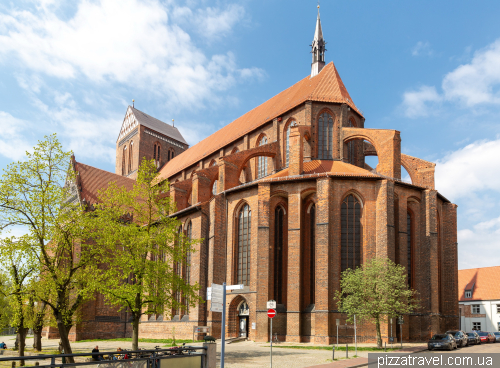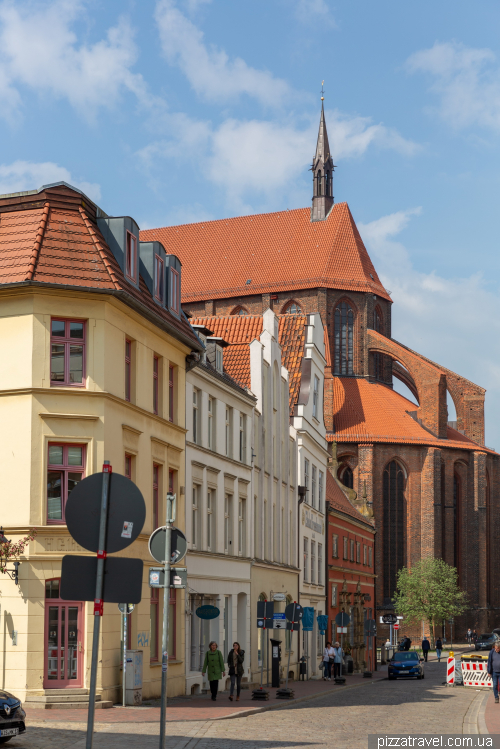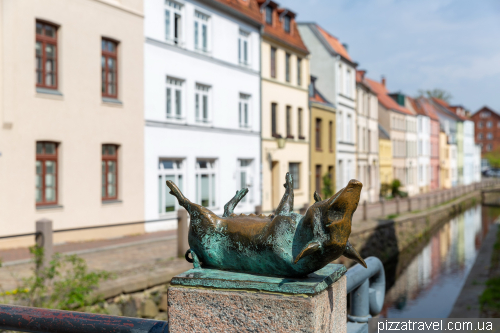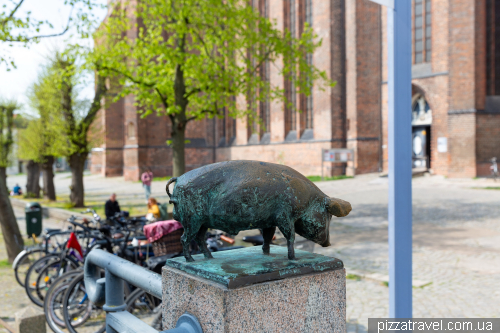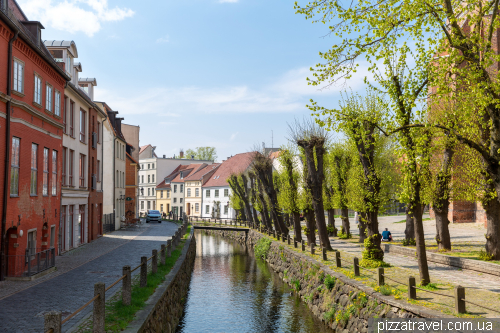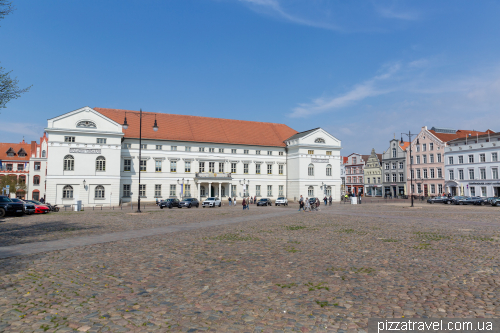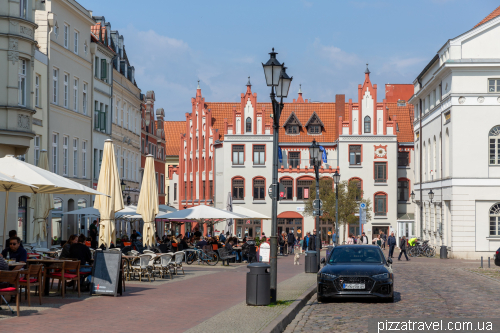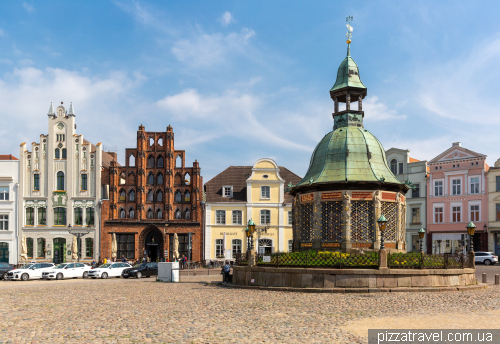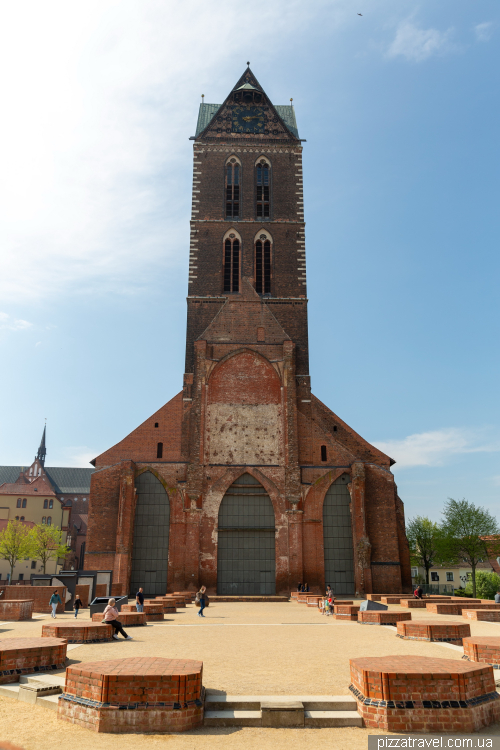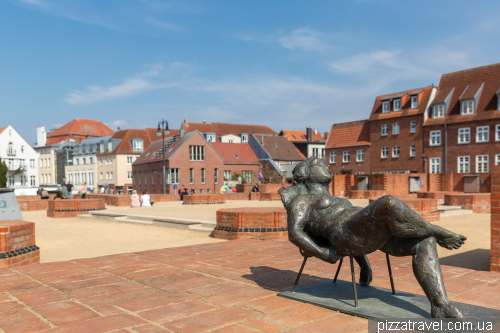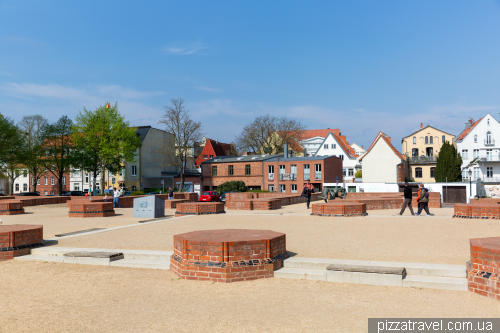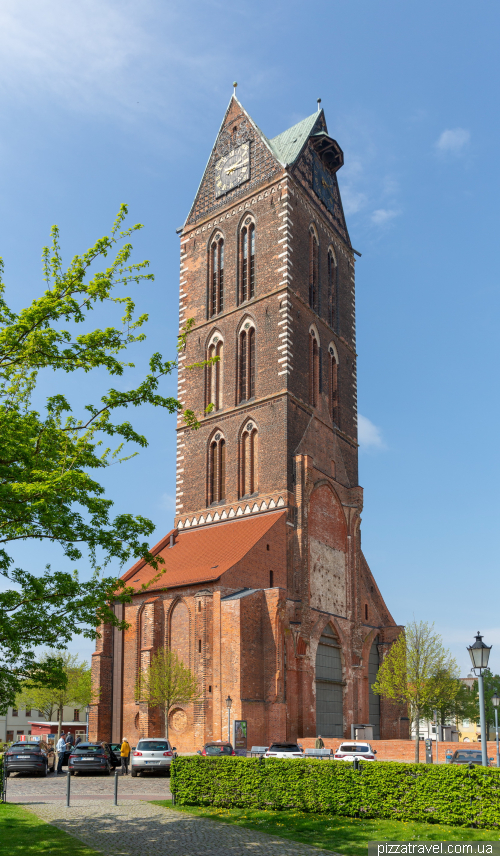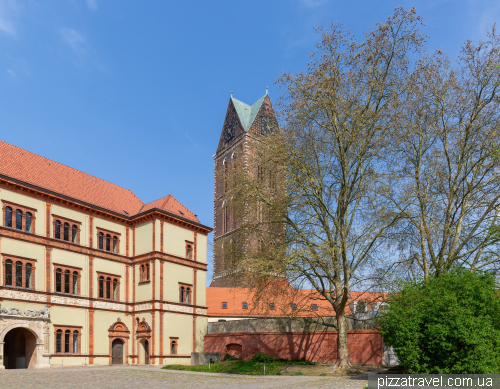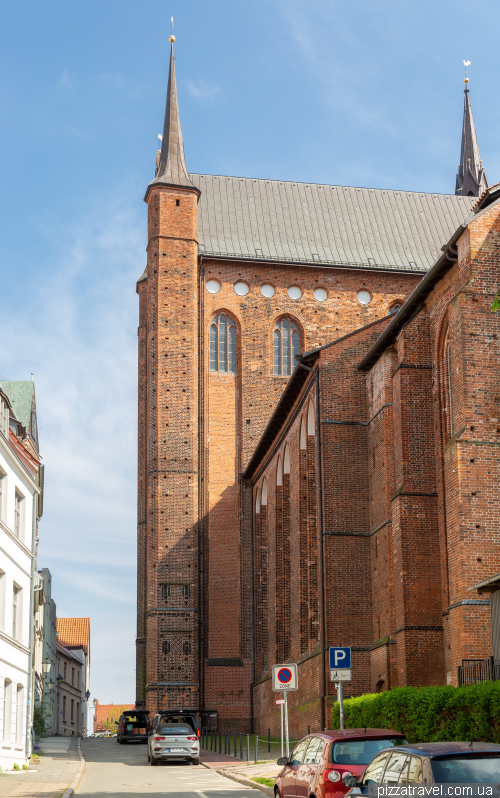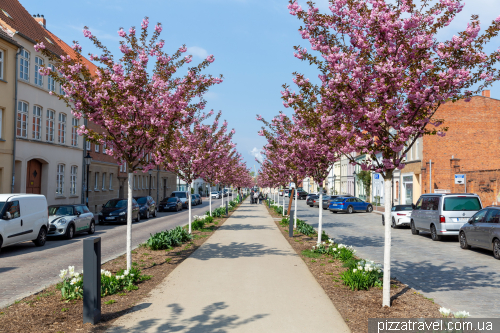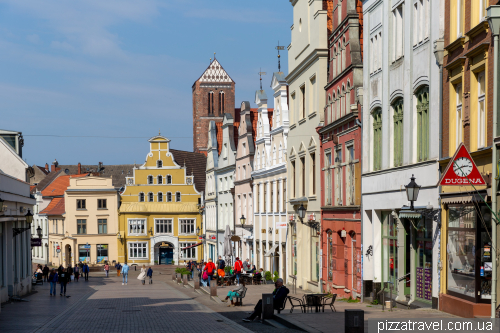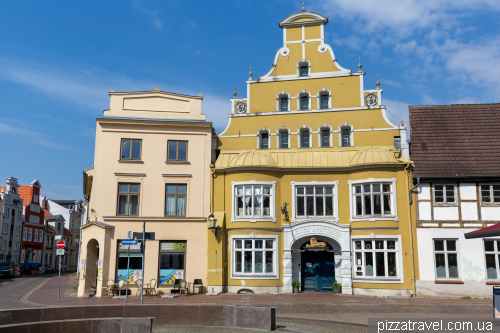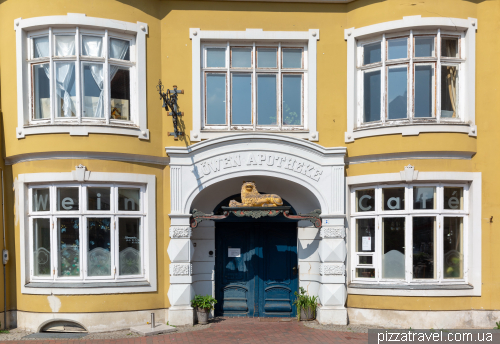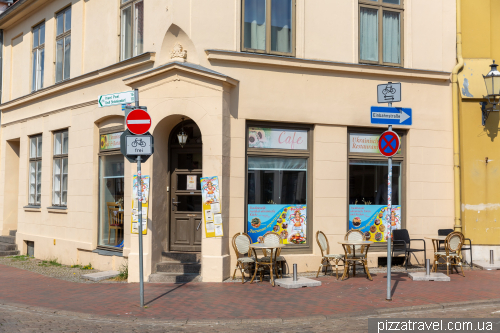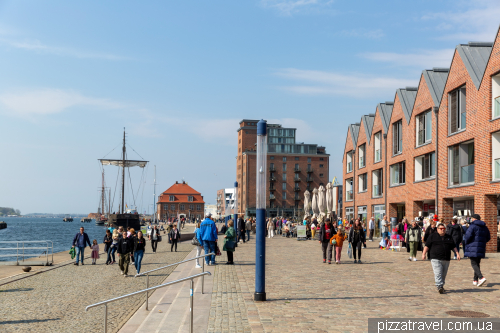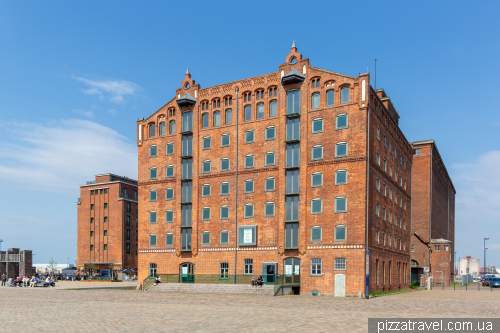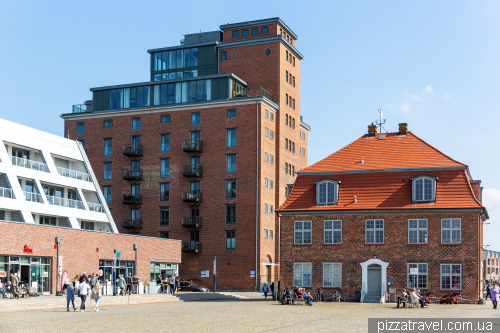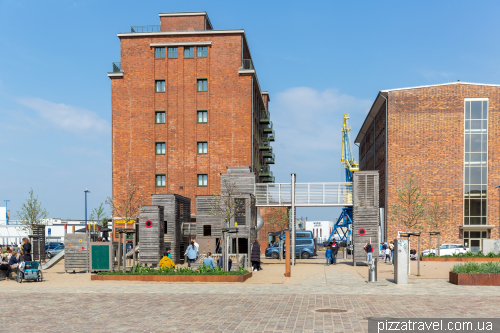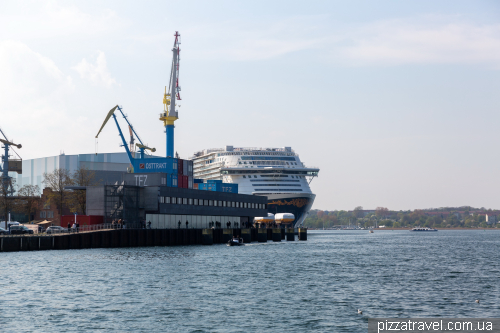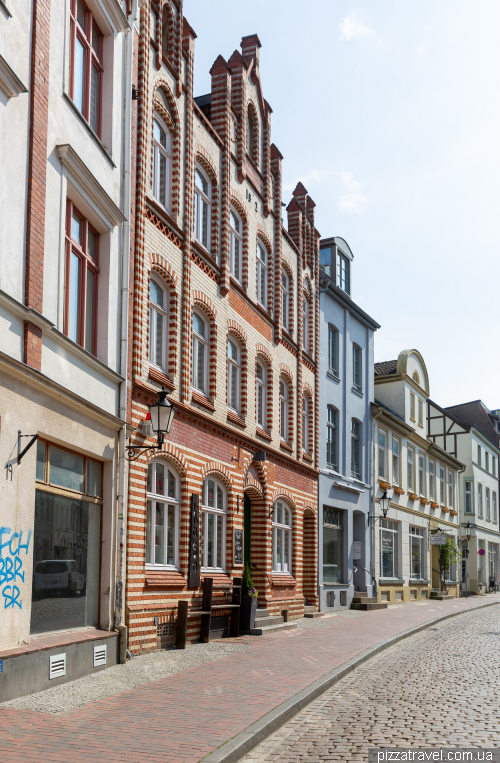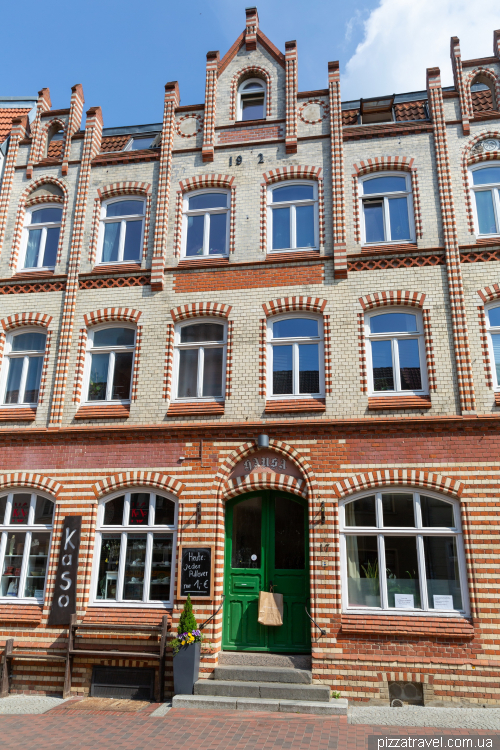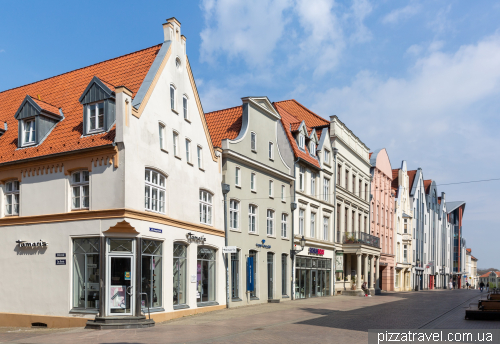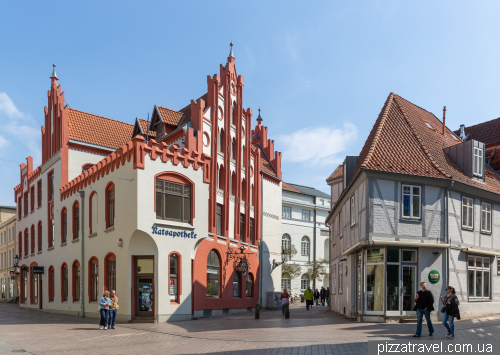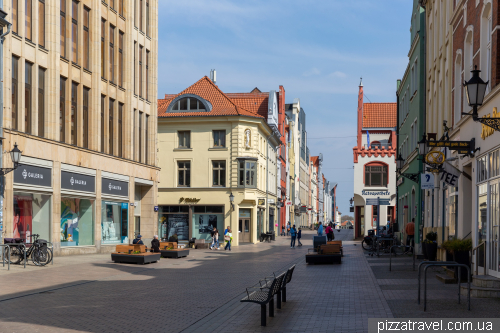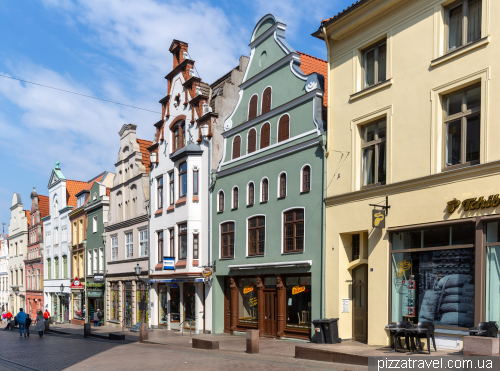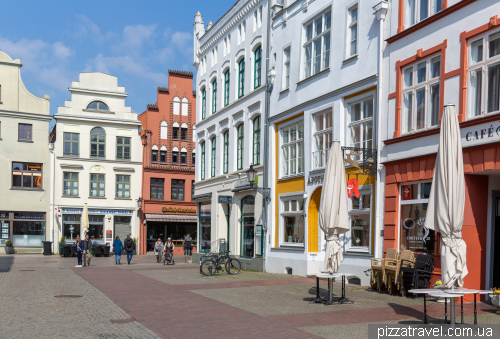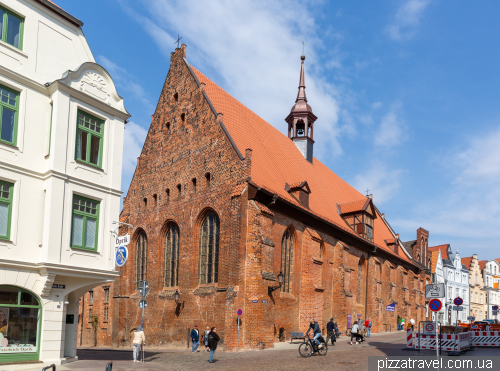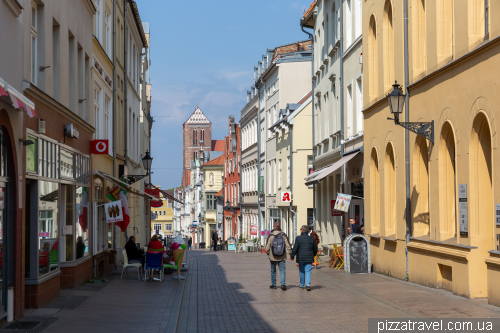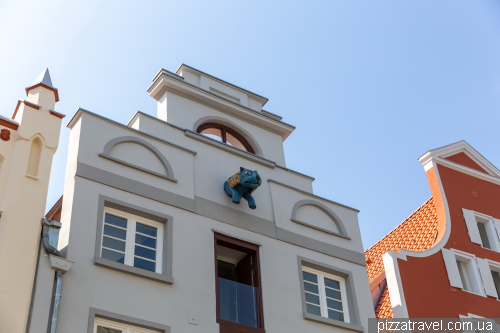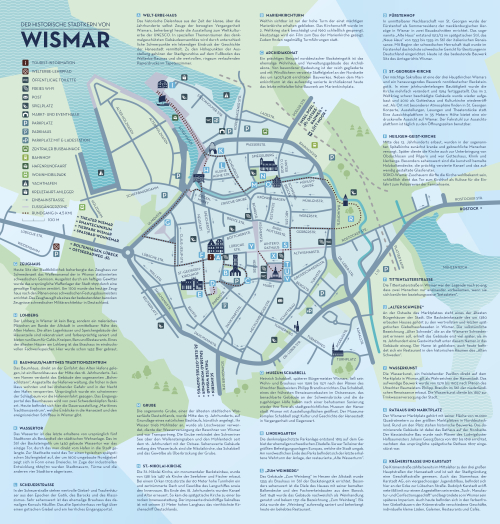It was first mentioned in 1229. By the 14th century, Wismar had become a full-fledged and one of the most important members of the Hanseatic League. Wine, salt and fish passed through its port.
In 1648, after the Thirty Years' War and in accordance with the Peace of Westphalia, Wismar was ceded to Sweden. The city remained under Swedish rule for almost two centuries, until 1803, when it was transferred to Mecklenburg.
As you approach the city, you can see the huge St. Nicholas Church (Nikolaikirche, 1381–1487) from all sides. This is not surprising, as the Gothic church is one of the tallest in Germany.
There is an interesting bridge with pigs (Schweinsbrücke) near the church. It is not known why it was named this, but figurines of pigs were placed on the bridge in memory of the name.
The city centre is traditionally Marktplatz (Market Square), which is quite large — one of the largest in Northern Germany. There are many interesting buildings here, the main ones being the 18th-century town hall and the Wasserkunst fountain (1602), one of the symbols of the city, which once served as a water supply.
The brown building in the background was built in 1380 and is called Alter Schwede (Old Swede). It is a striking example of the brick Gothic style of the time, a merchant's house.
During World War II, Wismar suffered heavy bombing damage, and many churches were destroyed. As in many other cities in the former GDR, restoration of the historic centre began after 1990. Since 2002, Wismar has been a UNESCO World Heritage Site.
Some destroyed buildings were left as they were, such as the foundation of St. Mary's Church. The church was built in the 14th century and was considered a masterpiece of brick Gothic architecture. Now it is something like an archaeological park, an interesting place to visit.
Nearby is another unusual building, St. George's Church (Georgenkirche), a huge temple that has been restored from ruins and is now used as a cultural venue for exhibitions and concerts.
Ukrainian restaurant in Wismar
At the end of our walk, we visited the Old Harbour (Alter Hafen), which has undergone extensive renovation, with old warehouses converted into offices, residential areas and restaurants.
If you are travelling with children, there is a high-quality playground in the Old Harbour, which cost €1.3 million to build.
During our visit, another popular attraction was the enormous Disney Adventure, the largest cruise ship ever built at the local shipyard.
Getting there: we parked here 53.897250, 11.462778, though there are many parking options around the old town centre. Wismar railway station is located almost in the old town.
